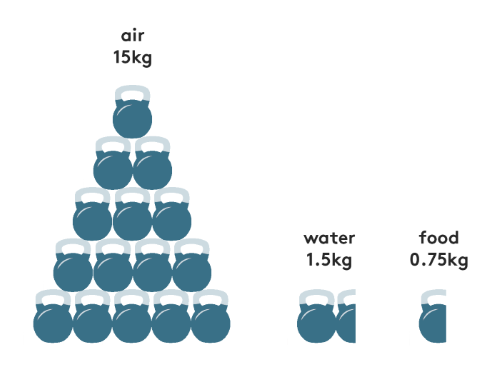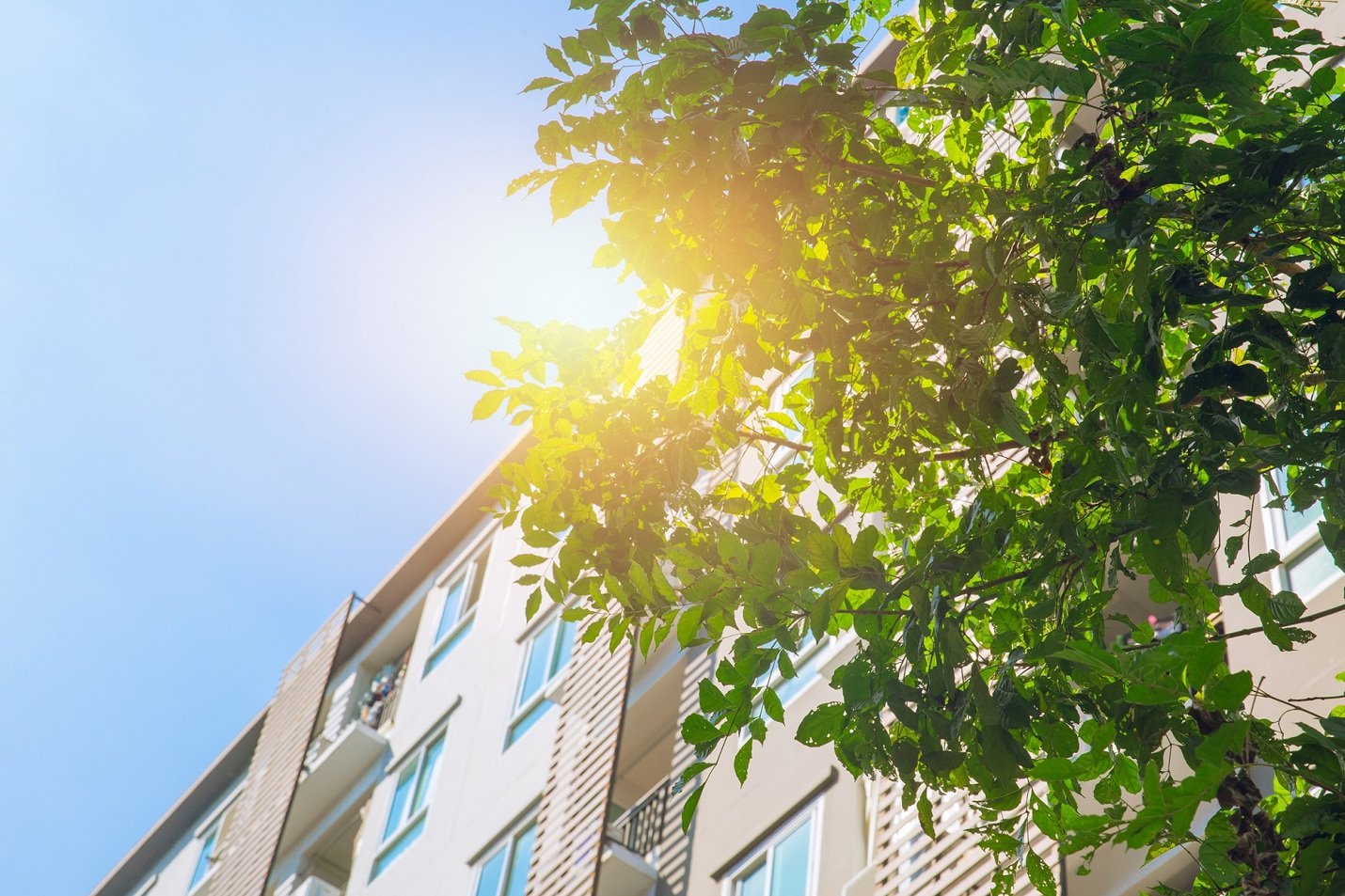Basic need for fresh air
The air that we breathe is the fundamental element of life, as it is essential for the normal functioning of all the cells in our body. There is a basic human need for fresh air. Simply — we need air, and good air at that.
Why is air important?
All living things need air.
Air is all around us. Air is everywhere. And there is a need for air, which is essential to live. Therefore, air is a major component of the earth and contains a blend of elements (for example, oxygen, carbon dioxide and nitrogen) that helps human life to sustain itself.
Without air, there is no life.
People can stay alive for days without water and for weeks, even without food. But without air, one cannot survive for more than a few minutes. This is why air is the most important thing in life. The air we breathe helps us stay alive and determines the quality of life we live.
Air is essential.
All living things breathe in air, breathing is part of a process called respiration. Air contains carbon dioxide, which plants use for photosynthesis. Animals need air for breathing to carry out the reactions that release and transform energy from food to growth and life.

Total human daily intake of a 75 kg male.

We cannot see air, but we can only feel its presence.
Presence of the air
Air has force. Moving air has force. It can move things. For example, a sheet of paper can move around the room if there is a physical component to move it, such as a fan.
Air fills space. Air has mass and takes up space, for example you can fill the balloon with air.
Air has weight. Air has no weight when it is free to move from one place to another, however it contains weight when it is filled inside any container.
Air moves. When the air moves fast, it is called wind. Wind can move things.
Air is a protection. On Earth, we have an air-filled atmosphere that acts as insulation. Ozone, a gas in the air, also protects us from sun radiation.
Use of air. Air/wind can run windmills & sailboats, and other movable machinery. Aeroplanes fly due to the presence of air. Oxygen in the air aids the combustion and burning of fuels to produce heat, electricity, power machinery and so on.
Bits of interesting things
Air is mostly gas — it's a mixture of different gases creating the Earth’s atmosphere (78% nitrogen, 21% oxygen and other gases, such as carbon dioxide, neon, ozone and hydrogen).
Air isn't just gas — it also holds many tiny particles called aerosols (dust and pollen). In the air, soot, smoke, and other particles from car exhaust and power plants are major contributors to air pollution.
Air contains life — living organisms can also hang out in the air. They are called bioaerosols (living tiny microbial organisms) and can travel long distances via wind, rain, or even a sneeze.
Air also holds water — relative humidity is the amount of water that the air can hold, typically measured in percentages. And the highest level of relative humidity can be 100%.
Air changes as it moves up — air seems light, but there is a lot of it pushing down, this is called air pressure. The air pressure is lower, the higher it is.
Fun facts about air & breathing
The air within our atmosphere is made up of a mixture of gases. The most relevant are oxygen 21%, nitrogen 78%, argon 0.93%, carbon dioxide 0.04% (400 ppm) and other gases in meagre amounts (water vapour, dust particles and microorganisms).
Humans inhale air and take it into the lungs, where the oxygen is separated. The air mixture then returns with the byproduct of cell metabolism, CO2.
That is why we inhale 21% O2 and 0.04% CO2. And we exhale 16% of O2 and 5% CO2.
This means that humans consume 24% of the oxygen they inhale.

Essential aspects of fresh air
Functional
This is related to the practical aspects of connecting the inside to the outside. For example, it is airing out a building or being able to act in connection with the weather and the house itself.
Aesthetic
This is from the perspective of the human body and its functions, i.e., regulating body heat and odour, getting fresh air from activities in the house, and enjoying a fresh breeze in a building.
Social
This relates to care and impression, the elements that deal with our need for being in control, that is, airing your home to provide health for loved ones, the feeling of freedom by opening the windows and letting the fresh air in and the sounds and the scents in the house.

Fresh air energises, improves and heals...
It makes you happier.
Serotonin release is affected by the amount of oxygen in your blood. Serotonin promotes a sense of happiness and well-being, so the more fresh air you have, the more it will help to boost your mood significantly. This is often why you feel better, more relaxed and refreshed when you have been outside.
It increases your energy and sharpens your focus.
Your brain uses 20% of the oxygen you breathe in to function. Increasing the amount of fresh air can provide greater clarity to the brain, promoting optimal function whilst helping you think, focus and concentrate better.
It strengthens your immune system.
Each cell in the body needs oxygen to perform the metabolic processes necessary to sustain life. By increasing your intake of fresh air, you increase the amount of oxygen supplied to the body. This promotes eliminating toxins and destroying harmful bacteria, parasites, and viruses by the white blood cells in the body.
It is good for your digestive system.
Fresh air increases oxygen flow into your cells, improving circulation and cell function and helping you digest food more efficiently. But if you work in an office where you are busy all day long and probably take your lunch in a hurry to resume work, your blood supply to the digestive tract will be diverted. Instead of flowing to the digestive tract, you'll have more blood supply to the brain to help maintain concentration. This, in turn, may disrupt the proper digestion of food and facilitate indigestion and abdominal discomfort.
It helps you sleep better at night.
Fresh air gives you a burst of oxygen, increasing the brain's feel-good hormone serotonin. Serotonin helps you stay calm and relaxed, and this can help you experience a more peaceful sleep at night.
It lowers blood pressure and heart rate.
Every cell in your body needs oxygen to function. When there isn't enough to go around, your heart needs to work harder to make sure that what's available gets to where it needs to go. Fresh air has plenty of oxygen, so a few deep breaths helps to bring in more of this vital gas to your body. This means your heart can relax, since it takes less effort to deliver what your body needs. End result? Your heart rate slows down, and your blood pressure lowers.
It reduces airborne illnesses and infections.
Breathing in fresh air can help to reduce airborne illness and infection. This is because bacteria and viruses have a reduced chance of survival in fresh air.
It helps you heal faster.
Healing from illness and injuries is pretty taxing on the body. Since every cell requires oxygen, it makes sense that replacing damaged cells increases your body's demand for air. While oxygen therapy has been shown to help improve recovery time for athletes, fresh air can help you feel better and heal faster, too.
It helps clean your lungs.
Fresh air is good for your lungs. When sitting indoors, it's common to breathe shallowly, inhaling the air into the top of your lungs, known as apical breathing. When outdoors, moving, walking or jogging encourages increased diaphragmatic breathing. This means that you breathe more deeply, drawing more air deep into the bottom of your lungs. This not only brings more oxygen into your cells but helps the lungs to expel more airborne toxins from the body. This therefore helps you to cleanse from the inside.
It can prolong your lifespan.
When you are exposed to fresh air, it can help increase your lifespan by improving your overall health. Fresh air contains a variety of important chemicals and elements that can improve your immune system, keep your lungs healthy, and even protect your heart.
How much fresh air is needed?
Fresh air is the air outside — we can get unlimited air outdoors.
However, indoors — within a room or other enclosed space, or in a building — due to living and working in enclosed areas, we do not get the optimal amount of fresh air needed.
Typically, in buildings, the air from outside is delivered naturally or through the mechanical ventilation system. However, if the indoor air is recirculated, due to which impurities we may breathe in again and again, which includes indoor pollutants and also higher levels of carbon dioxide levels. To avoid this, fresh air is supplied as per the number of occupants and the area of the space.
The average fresh air requirement per person per second is 8 litres.
This is how much air we breathe. If we do not get this much fresh air, we may experience fatigue, drowsiness & dullness of mind. And the long-term effects on our health might be even worse.
"We must think of clean air as we think of clean water and fresh food. Here, we do not compromise, nor should we do so with the indoor climate."
— Pawel Wargocki, The Technical University of Denmark
Read more from external sources
Fresh air never gets old.Anonymous